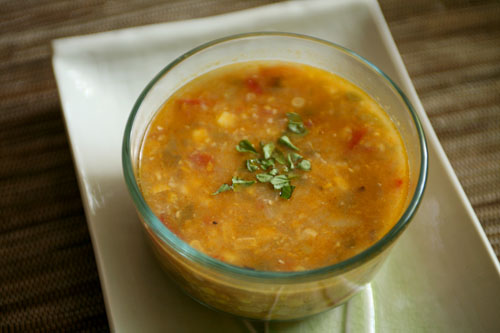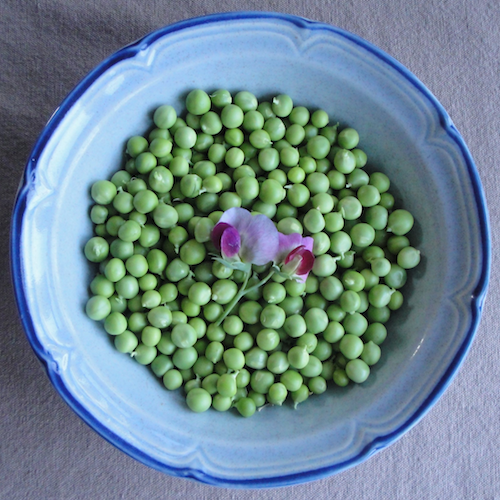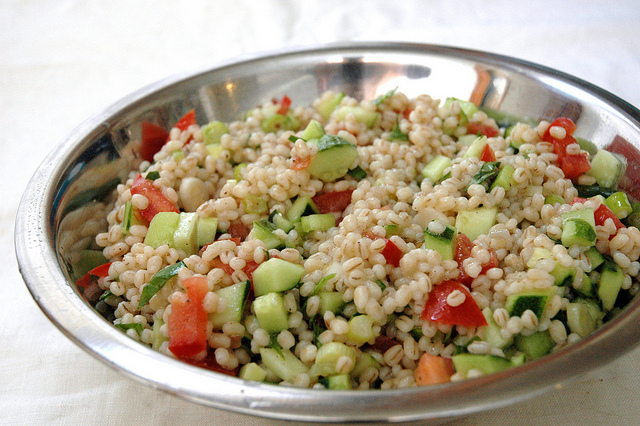We know that cooking at home can save money and even help you reduce your food-related waste, but could it also mean a better life expectancy?
Your typical restaurant food is brimming with salt, unhealthy fats, and tends to feature over the top portion sizes. Limiting those factors in your diet can play a large role in overall healthy, which may be why a recent study in the Cambridge University journal Public Health Nutrition found that people who cook at home five or more days each week are almost 50 percent more likely to live 10 years longer than folks who eat restaurant food for most of their meals.
They study followed 1,888 individuals over age 65 for 10 years and controlled for other factors that can affect longevity like gender and health factors that would prevent you from cooking and folks who cooked still came out ahead. Researchers think that not only were home cooks eating healthier but the act of shopping for food and cooking itself helped keep them well. Lead study author Professor Mark Wahlqvist told Food Safety News:
The pathways to health that food provides are not limited to its nutrients or components, but extend to each step in the food chain, from its production, to purchase, preparation and eating, especially with others.
Cooking at Home Tips
Great, so you know that cooking at home may make you healthier, but if you’re not in the habit, how do you get started? Here are some tips that have really helped me in the past:
- Plan, plan, plan. Sit down and think about what you’d like to eat for the week. Choose a few recipes and write yourself a grocery list so you’ll have some direction at the store.
- Start small. The study suggests that five or more meals a week is the sweet spot, but don’t push yourself too far too fast. You’ll just end up overwhelmed and back to take out and restaurant food. Give yourself time to transition to cooking at home. Maybe that means you cook one meal a week at first and add another meal every couple of weeks until you’re a home-cooking champ. Don’t think about what you’re not doing. Give yourself a high five for what you are able to swing. That’s how any good habit starts and sticks.
- Cook for leftovers. If you have a busy week coming up, do some weekend cooking, so you can just reheat leftovers all week long.
- Clean your cabinets and stock up on staples. If you haven’t done any cooking in a long time, go through your cabinets. Get rid of stale spices and anything else that’s spoiled to make room for new staples. That first shopping trip might send you into sticker shock, but remember that staples like garlic powder, ketchup, and cinnamon are not things you’re going to be buying every week. They last ages, and you’ll save money over time if you use them!
- Have the right tools. You don’t have to spend a ton of cash on cookware, but there are a few tools that you’ll be glad you have. Invest in a good, sharp paring knife and knife sharpener, a good frying pan, and you may even want to splurge on a Dutch oven. The latter is a little pricey, but you can use it both on the stovetop and in the oven, so it’s a multipurpose kitchen tool. I use my Dutch oven in for cooking soups and sauces, too, so if you have one you theoretically can get by without a saucepan. Also make sure you have a set of cooking spoons, a colander, a good cutting board, and a small food processor.
- Pick up a cookbook. You don’t have to follow recipes to cook, but if you’re new to the kitchen a few cookbooks can help. If you don’t want to pony up the cash, that’s ok! You can find plenty of recipe inspiration online. Check out our recipe archive for some cooking inspiration to get you started.
Do you cook most of your meals at home? What tips would you give to a beginner who’s looking to do more home cooking?
Image Credit: Creative Commons photo by kblanqua








